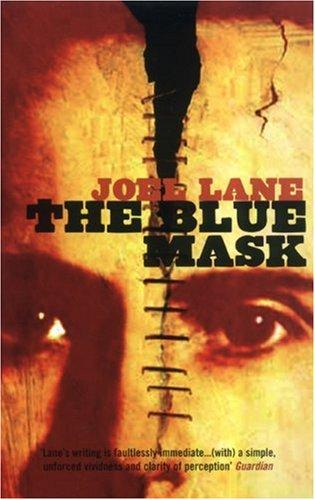Chris reviewed The blue mask by Joel Lane
None
4 stars
This is a largely non-fantastical novel by Joel Lane who sadly left us last year. It is the story of a young man at Birmingham University who is attacked one night by a casual pickup, leaving him disfigured, and what happens in his life after that.
I was intrigued to see the narrative set in places I now know - not just Birmingham but South Birmingham at that. Kings Heath, Selly Oak and Balsall Heath figure largely. Names I knew already like the Jug of Ale (now an Indian restaurant) and episodes from the city's social history - Lane tells the story of the 'clearing out' of the red light district in Balsall Heath but also mentions that it led to any single woman under the age of 50 being driven out of the area, sex worker or otherwise. (Hilary Kinnell in "Violence and Sex Work in Britain" [Willan, 2008] …
I was intrigued to see the narrative set in places I now know - not just Birmingham but South Birmingham at that. Kings Heath, Selly Oak and Balsall Heath figure largely. Names I knew already like the Jug of Ale (now an Indian restaurant) and episodes from the city's social history - Lane tells the story of the 'clearing out' of the red light district in Balsall Heath but also mentions that it led to any single woman under the age of 50 being driven out of the area, sex worker or otherwise. (Hilary Kinnell in "Violence and Sex Work in Britain" [Willan, 2008] has similar reservations - to put it mildly - about what went on).
The novel is set in the late 1990s, when there was at first a genuine hope for change under New Labour but which soon dissolved into disappointment - here we see Neil and his fellow students tearing up their Labour Party membership cards when the Blair government brings in tuition fees. The betrayal of New Labour is a second blow to a city which has already seen its industry decimated during the Thatcher and Major years. Neil's quest leads him into some dark places and a time where politics was taken more seriously than it seems to be now although with the renewed rise of the far Right some of it is familiar. Labour has betrayed them and the SWP offers them little other than dogmatic entryism.
Jean Genet is an influential name in the world of The Blue Mask and comes in for a lot of quoting. The other name you might expect is William S Burroughs but the old junky was too sex-negative for the world depicted, even if he did make his final journey to the Western Lands in 1997, just at the right (or wrong) time for this book. Lane makes no more of that than he does about the year's other celebrity decease, the Sainted Princess; it could be that was more a London thing. If you were in Hammersmith at the time the manufactured mourning hit you like a wave. In Kings Heath, maybe less so.
This is a novel about identity - Neil identifying himself as gay, claiming gay/straight is what it's all about and then pulling away from that as what happens if / when you change sides? Were there any sides to start with? The rest of the world however may not be so forgiving - for example when he and another man are attacked physically by a man who is out with his (equally homophobic) girlfriend. Neil is not from Birmingham but from Macclesfield which gives him another layer of distancing � and also allows a sense that Brum isn't 'that bad' by comparison with smaller more insular communities. Even when he goes 'home' to Macclesfield, he has a feeling that it isn't home any more and that the level of shit-on-your-own-doorstep nastiness in the pubs and public places way outstrips the metropolitan indifference of Birmingham. ("you phone the Samaritans and they say 'tough shit'" - nice line).
Joel Lane's fiction was often concerned with the world beyond what we see and that is true for The Blue Mask, despite on the surface being a realistic narrative. Can you go home again? "If you lived in that shadow, it was hard to know where you were. Or where you were going."

